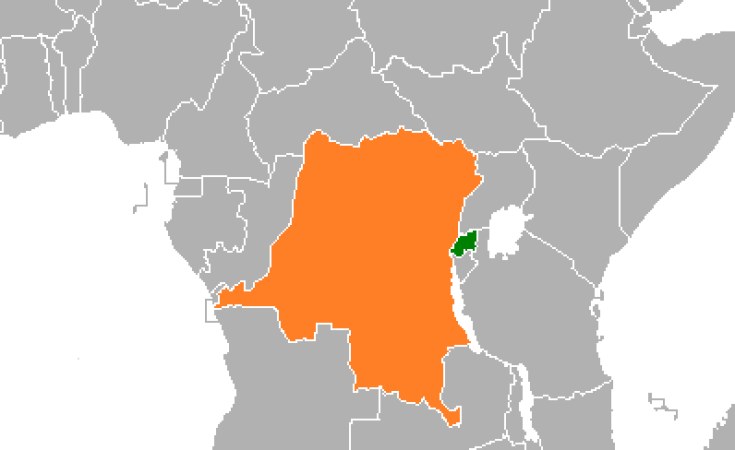M23 rebels have made gains in eastern Democratic Republic of Congo, raising fears of a further deterioration of security. The African Union has called for a ceasefire and negotiations to ensure peace.
The African Union (AU) on Sunday called for a ceasefire in the Democratic Republic of Congo (DRC), after Congolese rebels captured strategic terrain in the east of the country.
The March 23 Movement, widely known as M23, tightened its grip on several territories by seizing the towns of Kiwanja and Rutshuru Saturday, cutting North Kivu's capital Goma off from the upper half of the province.
The AU's statement expressed "extreme concern at the deteriorating security situation" in eastern DRC.
The organization called for an immediate ceasefire and demanded all warring parties "respect international law, the safety and security of civilians and the stability at the borders of all countries in the region."
In response to M23's latest activities, the DRC expelled Rwandan ambassador Vincent Karenga. It also recalled the Congolese ambassador in Kigali.
Kinshasa accuses the neighboring country of supporting the rebels, an accusation Rwanda has officially denied.
Regional powers increasingly worried
The DRC's move was likely to exacerbate tensions with Rwanda. According to news agencies, on Monday thousands of anti-Kigali protesters marched through the eastern DRC city of Goma demanding weapons to fight Rwanda.
The AU had placed hopes for progress towards peace on the third inter-Congolese peace dialogue scheduled to take place in the Kenyan capital Nairobi from November 4 to 13.
In its statement, the AU also expressed "full support to the Luanda Road Map."
In July, Rwanda's President Paul Kagame and DRC's head of State Felix Tshisekedi agreed at a summit meeting in Angola's capital to deescalate tensions by normalizing relations and building mutual trust.
Angola's President Joao Lourenco said on Monday that he would dispatch his Foreign Minister Tete Antonio to DRC to mediate the dispute, highlighting the concern caused by growing tensions in the region.
Rwandan President Paul Kagame tweeted on Monday that he had held a discussion with UN secretary general Antonio Guterres on how to de-escalate.
Rising number of displaced
Through its advances on Saturday, the M23 doubled the territory it held previously.
The UN peacekeeping mission MONUSCO said that four soldiers were wounded by mortar fire and shooting. It issued a statement condemning the "hostile actions of the M23" and warning of serious consequences for the civilian population.
Congolese from the areas affected are fleeing into neighboring Uganda. According to humanitarian agencies, at least ten thousand people, mostly women and children, have crossed the Busanza border since the weekend.
Earlier, the UN Office for the Coordination of Humanitarian Affairs (OCHA) said that some 23,000 people have fled the DRC since renewed fighting between government troops and rebel militia.
Who are the M23 rebels?
Founded in 2012, M23 is a mostly Congolese Tutsi-led insurgency group. It rose to prominence that year when it captured Goma, the largest city in the east of the DRC, before a joint Congolese-UN offensive drove them out.
After a peace deal in 2013, many of its fighters were integrated into the national military.
But M23 resumed fighting in late 2021, accusing the government of not honoring its commitments under the peace agreement.
Edited by: Cristina Krippahl


